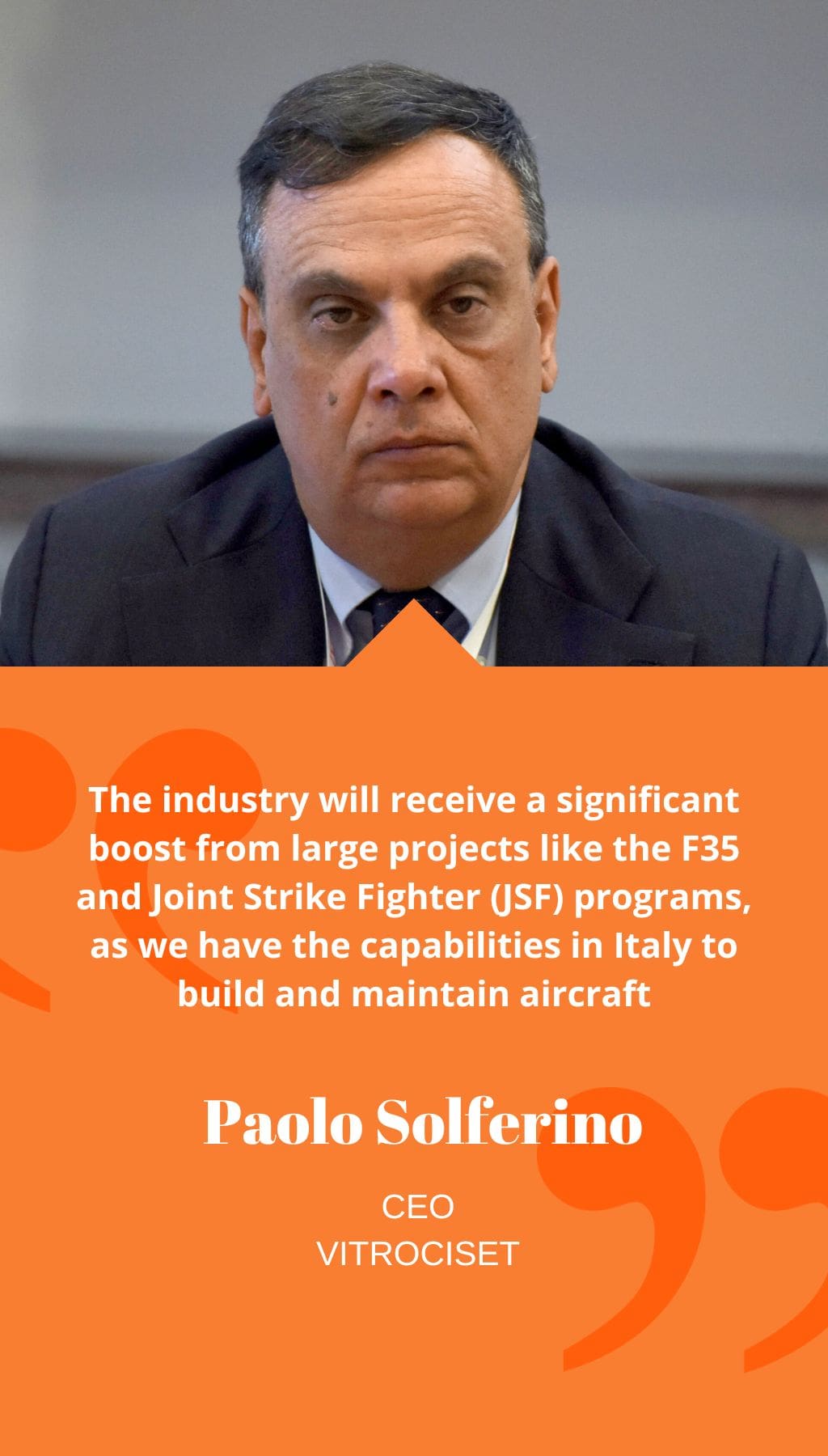
- Italy | 26 June 2018

Can you provide us with a brief history of Vitrociset and its key developments since its formation in 1992?
Our company has a rich history in the aerospace industry, dating back 40 years. We began with Ciset and merged with Vitroselenia in 1992. Initially, our focus was on logistics support for Italian traffic control in association with INAF, but over the years, we have evolved into a turnkey systems company with the ability to realize entire infrastructures from design to testing and maintenance.
What markets does Vitrociset operate in, and which is the largest focus area?
We operate in three key markets: defense and security, space, and transport. Our largest focus area is defense and security, accounting for about half of our revenue. We are also involved in ground support for space operations. In fact, last year, we were selected by the European Space Agency (ESA) as a ‘Best Company’ based on our quality of service and excellent delivery.
What are the main challenges of operating in the Italian market?
The primary challenge in the Italian market is its limited growth, which makes expansion difficult for companies. It is crucial to explore opportunities in international markets. However, we have a close relationship with the Italian government in our defense operations, which provides support in negotiations and entering new markets. While there are not many new programs in defense, we hope to see more growth in the space sector. The industry will receive a significant boost from large projects like the F35 and Joint Strike Fighter (JSF) programs, as we have the capabilities in Italy to build and maintain aircraft.
What are Vitrociset’s growth strategies and areas of focus for the next three to five years?
Currently, we are working on a specific drone project with financial support from the Italian government. Cybersecurity is another significant area of focus for us, and we have started work on a cybersecurity project for ESA in partnership with another company. Regarding defense and space, our primary focus will be on international markets, as we see many opportunities in Eastern Europe and the Far East. Currently, international markets account for only 40% of our business, but we plan to increase this percentage. We plan to make significant investments in Turkey because we have found strong motivation from the government to develop capabilities, and there are several investment opportunities available.














